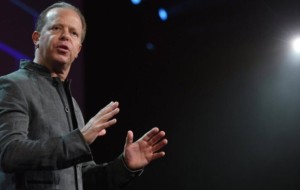CCFO Recruitment: Navigating the Challenges of Finding the Right Financial Leader
In today's dynamic business environment, recruiting a Chief Financial Officer (CFO) presents unique challenges.
The Evolving Role of the CFO
In today's rapidly changing business environment, the role of the Chief Financial Officer (CFO) has evolved significantly. Traditionally seen as the guardian of a company's financial health, the modern CFO is now a strategic partner to the CEO and a key player in shaping the company's future. This transformation is driven by the increasing complexity of global markets, technological advancements, and the need for businesses to be agile and innovative. The CFO is no longer confined to the back office; they are at the forefront of decision-making, influencing everything from mergers and acquisitions to digital transformation initiatives.
Strategic Leadership and Decision-Making
The CFO's role as a strategic leader is crucial in today's business landscape. They are responsible for providing insights and analysis that drive strategic decisions, ensuring that the company is on a path to sustainable growth. This involves not only managing the company's finances but also understanding the broader economic environment and anticipating future trends. The CFO must be adept at risk management, identifying potential threats and opportunities, and advising the executive team on the best course of action. Their ability to translate financial data into actionable strategies is essential for the company's success.
Financial Stewardship and Governance
As the financial steward of the organization, the CFO ensures that the company's financial practices are sound and compliant with regulations. This involves overseeing financial reporting, budgeting, and forecasting, as well as managing relationships with investors and stakeholders. The CFO's expertise in governance is critical in maintaining the trust and confidence of shareholders, regulators, and the public. They must ensure that the company adheres to ethical standards and that its financial practices are transparent and accountable.
Driving Innovation and Technology Adoption
In an era where technology is reshaping industries, the CFO plays a pivotal role in driving innovation and technology adoption within the organization. They are responsible for evaluating the financial implications of new technologies and ensuring that investments in digital transformation align with the company's strategic goals. The CFO must work closely with other departments to integrate technology into the business model, enhancing efficiency and competitiveness. Their ability to leverage data analytics and digital tools is vital in making informed decisions and staying ahead of the competition.
Building and Leading High-Performing Teams
A successful CFO must also be an effective leader, capable of building and leading high-performing finance teams. This involves recruiting top talent, fostering a culture of continuous improvement, and developing the skills of team members to meet the demands of a dynamic business environment. The CFO must inspire and motivate their team, ensuring that they are aligned with the company's vision and objectives. By cultivating a strong finance team, the CFO can drive operational excellence and support the organization's strategic initiatives.
Conclusion
The importance of a CFO in today's business landscape cannot be overstated. As a strategic leader, financial steward, and innovator, the CFO is integral to the success and sustainability of the organization. Their ability to navigate the complexities of the modern business environment and drive strategic initiatives makes them an indispensable asset to any company.
Understanding the Evolving Role of the CFO
Historical Perspective of the CFO Role
The role of the Chief Financial Officer (CFO) has undergone significant transformation over the decades. Traditionally, CFOs were primarily seen as financial gatekeepers, responsible for managing the company's financial statements, budgeting, and compliance. Their focus was largely on historical financial data, ensuring accuracy in reporting, and maintaining fiscal discipline. This role was often reactive, with CFOs responding to financial issues as they arose.
Shift Towards Strategic Leadership
In recent years, the role of the CFO has expanded beyond traditional financial management to encompass strategic leadership. Modern CFOs are expected to be key players in shaping the company's strategy and driving business growth. They are involved in decision-making processes that affect the entire organization, providing insights that go beyond numbers. This shift requires CFOs to have a deep understanding of the business landscape, competitive dynamics, and market trends.
Emphasis on Technology and Data Analytics
The digital revolution has significantly impacted the CFO role, with technology and data analytics becoming central to financial leadership. CFOs are now expected to leverage advanced analytics to provide real-time insights and predictive analysis. This involves using big data to identify trends, forecast future financial scenarios, and make informed decisions. The integration of technology in financial operations also means that CFOs must oversee the implementation of financial software and ensure cybersecurity measures are in place.
Focus on Risk Management and Compliance
As businesses face increasing regulatory scrutiny and complex global markets, the CFO's role in risk management and compliance has become more pronounced. CFOs must ensure that their organizations adhere to regulatory requirements and manage financial risks effectively. This involves developing robust risk management frameworks, conducting regular audits, and staying updated on changes in financial regulations. The ability to anticipate and mitigate risks is now a critical component of the CFO's responsibilities.
Importance of Communication and Collaboration
The modern CFO must possess strong communication and collaboration skills. They are required to work closely with other C-suite executives, board members, and external stakeholders. Effective communication is essential for translating complex financial data into actionable insights that can be understood by non-financial leaders. Collaboration with other departments, such as IT, operations, and marketing, is crucial for aligning financial strategies with overall business objectives.
Driving Sustainability and Corporate Responsibility
With growing emphasis on sustainability and corporate responsibility, CFOs are increasingly involved in initiatives that promote environmental, social, and governance (ESG) criteria. They play a pivotal role in integrating ESG factors into financial planning and reporting. This involves assessing the financial impact of sustainability initiatives, ensuring transparency in ESG disclosures, and aligning financial strategies with the company's sustainability goals. CFOs are now seen as champions of sustainable business practices, balancing profitability with social and environmental considerations.
Key Challenges in CFO Recruitment
Evolving Role of the CFO
The role of the Chief Financial Officer has evolved significantly over the years. Traditionally focused on financial reporting and compliance, today's CFOs are expected to be strategic partners to the CEO, driving business growth and innovation. This shift requires candidates to possess a unique blend of financial acumen, strategic insight, and leadership skills. Identifying individuals who can balance these diverse responsibilities is a significant challenge for organizations.
Scarcity of Qualified Candidates
The demand for skilled CFOs often outpaces the supply, leading to a competitive market for top talent. Many organizations struggle to find candidates with the right combination of experience, skills, and cultural fit. The scarcity is exacerbated by the need for CFOs to have industry-specific knowledge, which further narrows the pool of potential candidates.
Cultural and Organizational Fit
Finding a CFO who aligns with the company's culture and values is crucial for long-term success. A candidate may have the necessary skills and experience, but if they do not fit well with the organization's culture, it can lead to conflicts and inefficiencies. Assessing cultural fit requires a deep understanding of both the candidate's personality and the company's ethos, which can be difficult to gauge during the recruitment process.
Technological Proficiency
As technology continues to transform the business landscape, CFOs are expected to be proficient in leveraging digital tools and data analytics to drive decision-making. This requires a level of technological literacy that not all traditional finance professionals possess. Organizations must identify candidates who are not only comfortable with technology but also capable of leading digital transformation initiatives.
Succession Planning
Many companies face challenges in developing a robust succession plan for the CFO role. The lack of internal candidates ready to step into the position can lead to a reliance on external recruitment, which may not always yield the best results. Effective succession planning involves identifying and nurturing potential leaders within the organization, ensuring a smooth transition when the time comes.
Compensation Expectations
The competitive market for CFOs often leads to high compensation expectations. Organizations must balance the need to attract top talent with budgetary constraints. This can be particularly challenging for smaller companies or startups that may not have the financial resources to compete with larger firms. Negotiating compensation packages that are both attractive to candidates and sustainable for the organization is a delicate task.
Globalization and Diversity
In an increasingly globalized world, companies are seeking CFOs who can operate effectively across different markets and cultures. This requires a diverse skill set and an understanding of international financial regulations and practices. Additionally, there is a growing emphasis on diversity and inclusion in leadership roles, which adds another layer of complexity to the recruitment process. Finding candidates who meet these criteria can be challenging, particularly in regions with less diverse talent pools.
Essential Qualities and Skills to Look for in a CFO
Strategic Vision and Leadership
A successful CFO must possess a strategic vision that aligns with the company's long-term goals. They should be able to see beyond the numbers and understand the broader business landscape. This includes identifying growth opportunities, assessing risks, and making informed decisions that drive the company forward. Leadership skills are crucial, as the CFO must inspire and guide their team, fostering a culture of financial discipline and innovation.
Financial Acumen and Expertise
At the core of a CFO's role is their financial acumen. They must have a deep understanding of financial principles, accounting standards, and regulatory requirements. This expertise enables them to manage the company's financial health, ensuring accurate reporting, compliance, and effective budgeting. A strong grasp of financial analysis and forecasting is essential for making data-driven decisions that support the company's strategic objectives.
Communication and Interpersonal Skills
Effective communication is vital for a CFO, as they must convey complex financial information to various stakeholders, including the board of directors, investors, and other executives. They should be able to translate financial data into actionable insights that are easily understood by non-financial colleagues. Interpersonal skills are equally important, as the CFO must build strong relationships across the organization and collaborate with different departments to achieve common goals.
Adaptability and Problem-Solving
In today's rapidly changing business environment, a CFO must be adaptable and able to respond to unforeseen challenges. They should possess strong problem-solving skills, enabling them to navigate financial crises, market fluctuations, and other disruptions. This requires a proactive approach, anticipating potential issues and developing contingency plans to mitigate risks.
Technological Proficiency
As technology continues to transform the financial landscape, a CFO must be proficient in leveraging digital tools and platforms. This includes understanding data analytics, financial software, and emerging technologies such as artificial intelligence and blockchain. Technological proficiency allows the CFO to streamline processes, enhance financial reporting, and gain insights that drive strategic decision-making.
Ethical Integrity and Accountability
A CFO must uphold the highest standards of ethical integrity and accountability. They are responsible for ensuring transparency and accuracy in financial reporting, maintaining the trust of stakeholders. This requires a commitment to ethical practices, adherence to regulatory standards, and a willingness to take responsibility for financial outcomes. A strong ethical foundation is essential for fostering a culture of trust and integrity within the organization.
Strategies for Attracting Top CFO Talent
Building a Strong Employer Brand
A compelling employer brand is crucial in attracting top CFO talent. Companies should focus on showcasing their unique culture, values, and vision. Highlighting success stories, employee testimonials, and the company's impact on the industry can create a positive image. Engaging content on social media and professional networks can further enhance visibility and appeal to potential candidates.
Offering Competitive Compensation Packages
To attract top-tier CFO candidates, organizations must offer competitive compensation packages. This includes not only a lucrative salary but also performance-based bonuses, stock options, and other financial incentives. Comprehensive benefits such as health insurance, retirement plans, and wellness programs can also make a significant difference in attracting high-caliber talent.
Providing Opportunities for Professional Growth
Top CFO candidates are often looking for roles that offer opportunities for professional development and career advancement. Companies should emphasize their commitment to continuous learning and development through training programs, mentorship opportunities, and pathways for career progression. Highlighting the potential for growth within the organization can be a strong selling point.
Emphasizing Work-Life Balance
In today's competitive job market, work-life balance is a key consideration for many candidates. Organizations should promote flexible working arrangements, such as remote work options and flexible hours, to attract top CFO talent. Demonstrating a commitment to employee well-being and a healthy work-life balance can set a company apart from its competitors.
Leveraging Executive Search Firms
Engaging with executive search firms can be an effective strategy for attracting top CFO talent. These firms have extensive networks and expertise in identifying and recruiting high-level executives. By partnering with a reputable search firm, companies can gain access to a broader pool of qualified candidates and benefit from the firm's insights and guidance throughout the recruitment process.
Cultivating a Diverse and Inclusive Workplace
Diversity and inclusion are increasingly important factors for candidates when considering potential employers. Companies should strive to create a diverse and inclusive workplace that values different perspectives and experiences. Highlighting diversity initiatives and demonstrating a commitment to inclusivity can attract a wider range of top CFO candidates who are looking for an environment where they can thrive.
Utilizing Technology and Data Analytics
Incorporating technology and data analytics into the recruitment process can enhance the ability to attract top CFO talent. Utilizing advanced recruitment software and data-driven insights can streamline the hiring process, identify the best candidates, and improve decision-making. By leveraging technology, companies can efficiently target and engage with potential candidates, ensuring a more effective recruitment strategy.
The Interview and Selection Process: Best Practices
Defining the Ideal Candidate Profile
Before initiating the interview process, it is crucial to define the ideal candidate profile. This involves identifying the specific skills, experiences, and attributes that align with the organization's strategic goals. FD Capital are a leading CFO Recruiter based in London. Consider the company's current financial challenges and future objectives to determine the necessary competencies. This profile should include both technical skills, such as financial analysis and risk management, and soft skills, like leadership and communication.
Structuring the Interview Process
A well-structured interview process is essential for evaluating candidates effectively. Begin by developing a clear framework that outlines the stages of the interview, the stakeholders involved, and the key competencies to assess at each stage. This may include initial phone screenings, panel interviews, and final interviews with senior executives. Ensure that each stage is designed to evaluate different aspects of the candidate's qualifications and fit for the role.
Crafting Effective Interview Questions
Crafting effective interview questions is vital to gaining insights into a candidate's capabilities and potential. Questions should be open-ended and designed to elicit detailed responses. Behavioral questions, which ask candidates to describe past experiences and how they handled specific situations, can be particularly revealing. Technical questions should assess the candidate's financial acumen and problem-solving abilities. It's important to tailor questions to the specific needs and culture of the organization.
Involving Key Stakeholders
Involving key stakeholders in the interview process ensures a comprehensive evaluation of candidates. This includes members of the executive team, board members, and other relevant department heads. Each stakeholder can provide unique perspectives on the candidate's fit for the role and the organization. Their involvement also helps build consensus and buy-in for the final hiring decision.
Assessing Cultural Fit
Assessing cultural fit is as important as evaluating technical skills. A CFO must align with the company's values and work effectively within its culture. During interviews, explore the candidate's leadership style, decision-making approach, and ability to adapt to the company's environment. Consider using personality assessments or cultural fit questionnaires to gain additional insights.
Utilizing Assessment Tools
Assessment tools can provide valuable data to support the interview process. Psychometric tests, case studies, and financial modeling exercises can help evaluate a candidate's analytical skills and decision-making capabilities. These tools offer an objective measure of a candidate's strengths and areas for development, complementing the subjective insights gained from interviews.
Conducting Reference Checks
Conducting thorough reference checks is a critical step in the selection process. Speak with former colleagues, supervisors, and subordinates to verify the candidate's past performance and gather insights into their work ethic and leadership style. Reference checks can confirm the candidate's qualifications and provide additional context for their potential fit within the organization.
Making the Final Decision
Making the final decision involves synthesizing all the information gathered throughout the interview process. Consider the candidate's technical skills, cultural fit, and feedback from stakeholders. Weigh the pros and cons of each candidate and how they align with the organization's strategic goals. Ensure that the decision is made collaboratively, with input from all key stakeholders, to select the best candidate for the CFO role.
Onboarding and Integrating a New CFO into the Organization
Understanding the Organizational Culture
Assessing Cultural Fit
The first step in onboarding a new CFO is to ensure they understand and align with the organizational culture. This involves assessing their cultural fit during the recruitment process and continuing this evaluation during onboarding. A CFO who resonates with the company's values and mission is more likely to succeed and drive the organization forward.
Immersive Cultural Orientation
Provide the new CFO with an immersive cultural orientation. This can include meetings with key stakeholders, participation in team-building activities, and exposure to the company's history and values. This helps the CFO to quickly acclimate and build rapport with the team.
Establishing Clear Expectations
Defining Roles and Responsibilities
Clearly define the roles and responsibilities of the CFO from the outset. This includes outlining their strategic objectives, key performance indicators, and expected contributions to the organization. FD Capital are a leading CFO Recruiter based in London.A well-defined role helps the CFO to focus on priorities and align their efforts with the company's goals.
Setting Short and Long-term Goals
Work with the CFO to set both short-term and long-term goals. Short-term goals help in achieving quick wins and building confidence, while long-term goals align with the organization's strategic vision. Regularly review these goals to ensure they remain relevant and achievable.
Building Relationships with Key Stakeholders
Engaging with the Executive Team
Facilitate introductions and regular interactions between the new CFO and the executive team. This helps in building trust and fostering collaboration. Encourage open communication and provide opportunities for the CFO to contribute to strategic discussions.
Connecting with the Finance Team
Ensure the CFO establishes a strong connection with the finance team. This involves understanding team dynamics, assessing current processes, and identifying areas for improvement. A cohesive finance team is crucial for the CFO to implement effective financial strategies.
Providing Necessary Resources and Support
Access to Tools and Technology
Equip the CFO with the necessary tools and technology to perform their duties effectively. This includes access to financial software, data analytics tools, and other resources that facilitate informed decision-making.
Ongoing Training and Development
Offer ongoing training and development opportunities to the CFO. This can include leadership workshops, industry conferences, and mentorship programs. Continuous learning helps the CFO stay updated with industry trends and enhances their leadership capabilities.
Monitoring Progress and Providing Feedback
Regular Performance Reviews
Conduct regular performance reviews to monitor the CFO's progress. These reviews should focus on their achievements, challenges faced, and areas for improvement. Constructive feedback helps the CFO to refine their strategies and align with organizational objectives.
Encouraging Open Communication
Promote a culture of open communication where the CFO feels comfortable sharing insights and concerns. This can be achieved through regular check-ins, feedback sessions, and an open-door policy. Open communication fosters a collaborative environment and supports the CFO's integration into the organization.
Conclusion: Ensuring Long-term Success with the Right Financial Leader
Aligning Vision and Strategy
A successful CFO must align with the company's vision and strategic goals. This alignment ensures that financial strategies support broader business objectives, fostering a cohesive approach to growth and innovation. The right financial leader will not only understand the current financial landscape but also anticipate future trends and challenges, positioning the company to adapt and thrive.
Building a Strong Financial Team
The effectiveness of a CFO is often reflected in the strength of the financial team they build and lead. A capable CFO will prioritize recruiting, developing, and retaining top talent within the finance department. By fostering a culture of continuous learning and collaboration, the CFO can ensure that the team is equipped to handle complex financial challenges and contribute to the company's success.
Emphasizing Ethical Leadership
Ethical leadership is crucial for maintaining trust and integrity within the organization and with external stakeholders. A CFO who prioritizes ethical decision-making sets a standard for the entire company, promoting transparency and accountability. This approach not only safeguards the company's reputation but also enhances its long-term sustainability by fostering a culture of ethical behavior.
Leveraging Technology and Innovation
In today's rapidly evolving business environment, leveraging technology and innovation is essential for maintaining a competitive edge. A forward-thinking CFO will embrace digital transformation, utilizing advanced analytics, automation, and other technological tools to optimize financial processes and decision-making. By staying ahead of technological trends, the CFO can drive efficiency and innovation across the organization.
Fostering Cross-Functional Collaboration
A successful CFO understands the importance of cross-functional collaboration in achieving organizational goals. By working closely with other departments, the CFO can ensure that financial strategies are integrated with operational and strategic initiatives. This collaborative approach enhances communication, aligns objectives, and fosters a unified effort towards achieving the company's long-term vision. FD Capital are a leading CFO Recruiter based in London.
Continuous Professional Development
The financial landscape is constantly changing, and a successful CFO must commit to continuous professional development. By staying informed about industry trends, regulatory changes, and emerging best practices, the CFO can ensure that their skills and knowledge remain relevant. This commitment to lifelong learning not only benefits the CFO personally but also enhances the overall capability and resilience of the organization.











Comments
0 comment